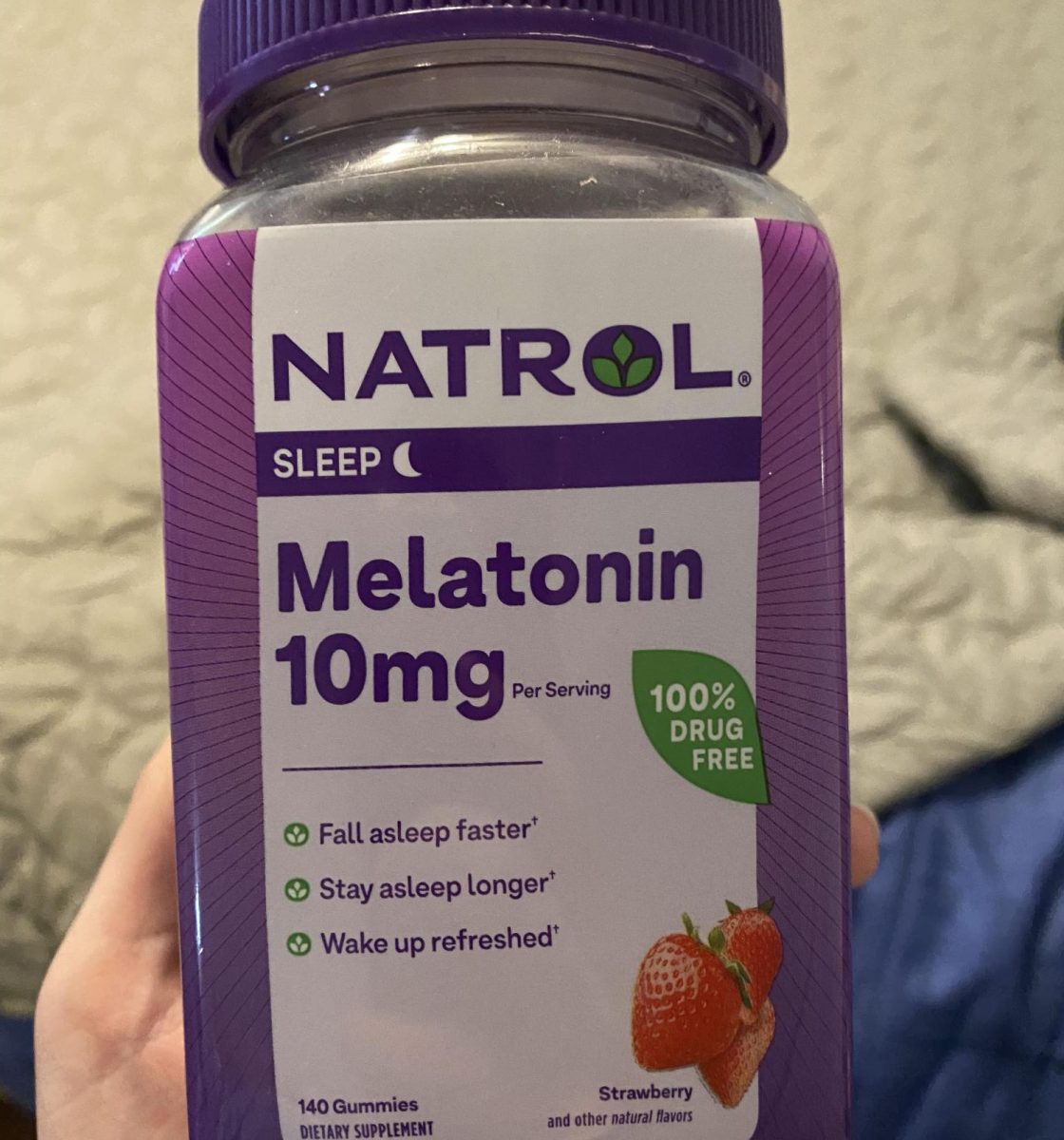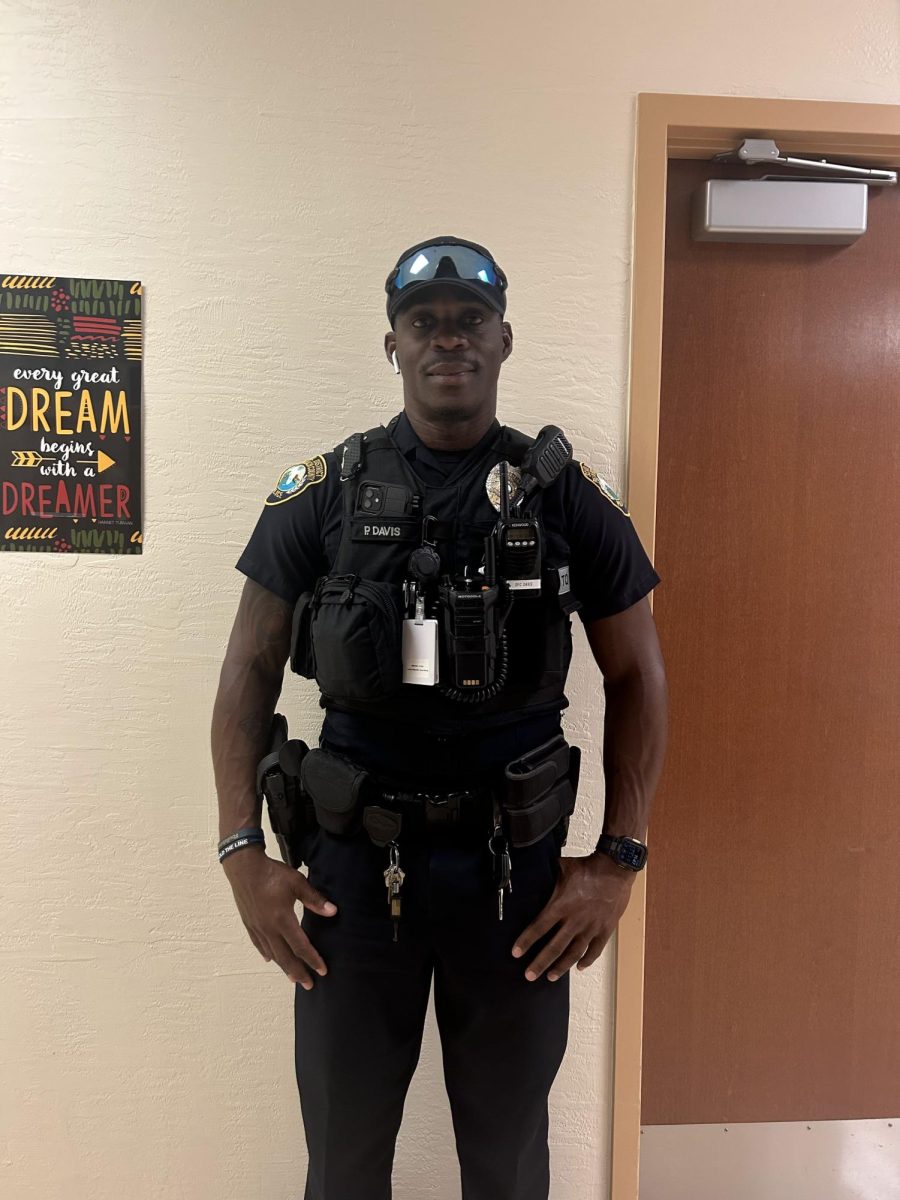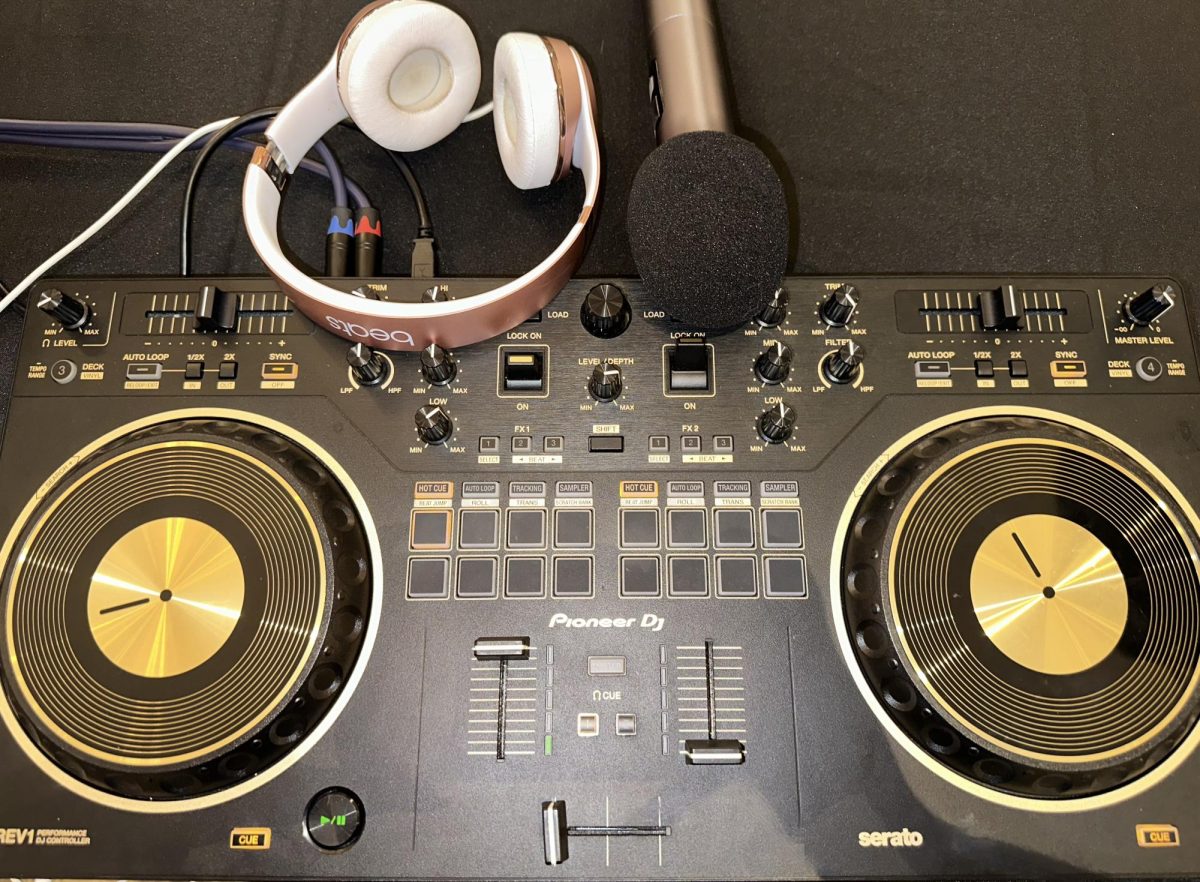The world’s population is roughly 8,045,311,447 people. The average person listens to around 961 hours and 10 minutes of music per year. We listen to approximately 1.3 million songs in our lifetime. So, if humans attempted to listen to every song in the world, it would take about 600 years. But why do we listen to music?
You also may be asking where music originated? While no one is completely sure, it’s possible that the early humans banged rocks together in an attempt to make tools, but when the rocks broke off, there could have been other purposes for the pieces like using the rock pieces to scrape. In addition, their sounds could have been made with their hands in order to create music,for example clapping. According to Rachel Becker, archaeological evidence shows that humans have used musical instruments dating back over 40,000 years ago. Studies show that the oldest playable musical instrument is a Neolithic flute which was originally discovered in central China. The Neolithic flute was formed from bones of cranes and had five – eight drilled holes. Chinese leaders added musical instruments like drums, ocarinas (wind instruments), and chimes to their tombs. In Mesopotamia, the Oxus trumpet was created around 2000 BCE (before Chirst existed), as well as arched harps from the third millennium BCE had been discovered in Western Iran. Illustrations show harpists performing with drummers, vocalists, and wind players as far back as the third millennium in Mesopotamia. There are many definitions of music; music is “an art form that combines either vocal or instrumental sounds, sometimes both, formed mainly for the beauty of a chosen form, harmony, and expression of emotion. Music represents many different forms that play key factors in cultures around the world.”
Music can benefit people in many ways. Whether it helps someone study, reduce stress anxiety, blood pressure, memory, how alert they are, sleep, or even the release of dopamine. In other words, our brains seek out behaviors that release dopamine as our reward system. So when listening to music you are helping your brain release a large amount of dopamine. You feel good and you seek more of that feeling. That’s why when you are listening to music, it helps! But, as all teens listen and enjoy music, we also run into some problems. The American Academy of Child & Adolescent Psychiatry says that today’s music such as many rappers, incorporate themes in their music that could be troublesome. For example, many songs talk about the following:
- Drugs and alcohol abuse and is glamorized
- Suicide as an “alternative” or “solution”
- Graphic violence
- Sex which may focus on control, devaluation of women, or violence toward women.
These songs have an enjoyable sound or beat, but sometimes they do not provide the best lessons for adolescents. While dating back to the 1960’s, some composers used their voice for political influence such as civil rights and anti-war messages. Some artists may include: Pete Seeger, Bob Dylan, Joan Baez, Janis Ian, Phil Ochs, Sam Cooke, Aretha Franklin, and Nina Simone.
There have been many areas in which listening to music is beneficial, but there are some downsides to listening to music. Playing certain songs can trigger emotions that you may make you feel a certain way. So let’s say that we are studying for our test tomorrow, and we have music running quietly in the background. The song “Unsteady” by X Ambassadors goes on, and it triggers a thought of depression, or more specifically parents having a difficult relationship and the impact that it had on their family. Because you can relate to this in some way, you end up sad and lose focus on what you were doing. We have to make sure that we are using music in a way that could be helpful for certain situations. Listening to music too loud could damage your ears, so you have to make sure you are being careful and know how loud your music is. Studies show that anything over 85 decibels can harm your ability to hear. You also need to make sure that your music isn’t a cause of isolating yourself. Unfortunately, at times because of music, our mind might get forgetful. A study was proven by Cardiff Metropolitan University researchers, that listening to music while completing a task may not be the best idea. Hearing something you enjoy may heighten your mood making it difficult to focus on your work so in the end you lose track of what you are doing, triggering a memory gap.”
People need music to survive. Music isn’t necessarily spoken in just words, but music is spoken through the language of emotion. “Music is an art of special emotional power. We cannot live without it. We like to listen to music, we love dancing to music, and we can play musical instruments.” (Danil Bogutskiy, group 920P) “According to Nielsen’s Music 360 2014 study, 93% of the U.S. population listens to music, spending more than 25 hours each week jamming out to their favorite tunes. In fact, 75% of Americans say they actively choose to listen to music, which is more than they claim to actively choose to watch TV (73%). Whether in the car (25%), at work (15%) or while doing chores (15%), we spend big chunks of our time listening to music.” Music is everywhere!
Music has the power to bring people together. It is one of the most basic and powerful human needs. It can also bring a social connection to make people’s lives happy and healthy. When people dance or sing as a group there is a sense of togetherness where everyone moves and has the same goals. According to Shahram Heshmat Ph.D. when the pandemic hit (Covid-19) music helped to bring people together even when they are apart. “In Europe the world watched as Italians emerged onto their balconies to sing the national anthem together and played instruments. In Naples, balconies of an apartment complex became stages for residents singing songs together.”Have you ever heard of oxytocin? Oxytocin is a specific hormone that contributes to the social bonding and trust in humans. So, oxytocin can be produced when people are singing together.
The Bullseye asked students if they thought that music has the power to bring people together. Of the 110 responses 100% said yes!
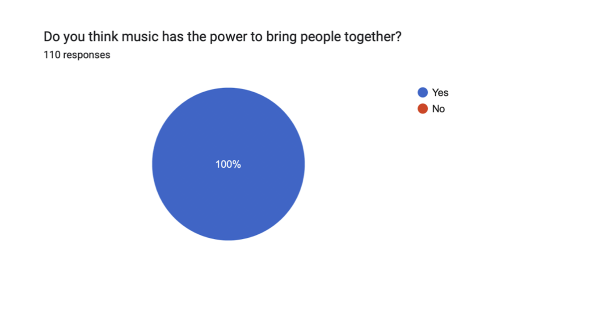
July 13, 1985, was the Live Aid concert at the old Wembley Stadium in London. The Live Aid concert brought 72,000 in the stadium which brought them to sell out, and a total of 1.9 Billion people who watched the live concert on their TV. The Live Aid concert brought billions of people together through music. This helped raise millions of dollars for famine relief in Ethiopia. This concert brought many singers together such as:
- David Bowie
- The Cars
- Dire Straits
- Judas Priest
- Madonna
- Tom Petty and the Heartbreakers
- Paul McCartney
- Queen
Music is found everywhere and benefits people in so many ways. Without music, the world would feel so bland and have a lack of creativity. Think about it. Music isn’t something we just play when we feel like it, but it’s in movies, at sport events, radios, and every noise that we make could be considered music if it has a specific pattern. The West Boca Bulls listen to music in a variety of ways. The students not only listen to music to help fulfill emotional challenges or stress but they also use it to help make them happier or to study. 100% of the students do listen to music but the breakdown for how they do it is interesting. 67.3% of students said that they listen to music to help express emotion and to study, 17.3% use music just to express emotion, 11.8% don’t use it for either, and 3.6% use music to study.
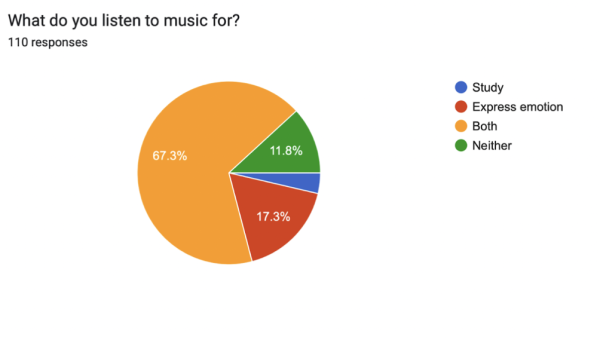
The variety of music listened to at West Boca ranges from: rap, rock, r&b, pop, lo-fi, electronic, Russian Rock, Indie, jazz, k-pop, metal, heavy metal, country, old pop, emo, alternative, latin, country and so much more. West Boca’s music is diverse! And as B.o.B talks about how he’s got the magic- music is the true magic.



























